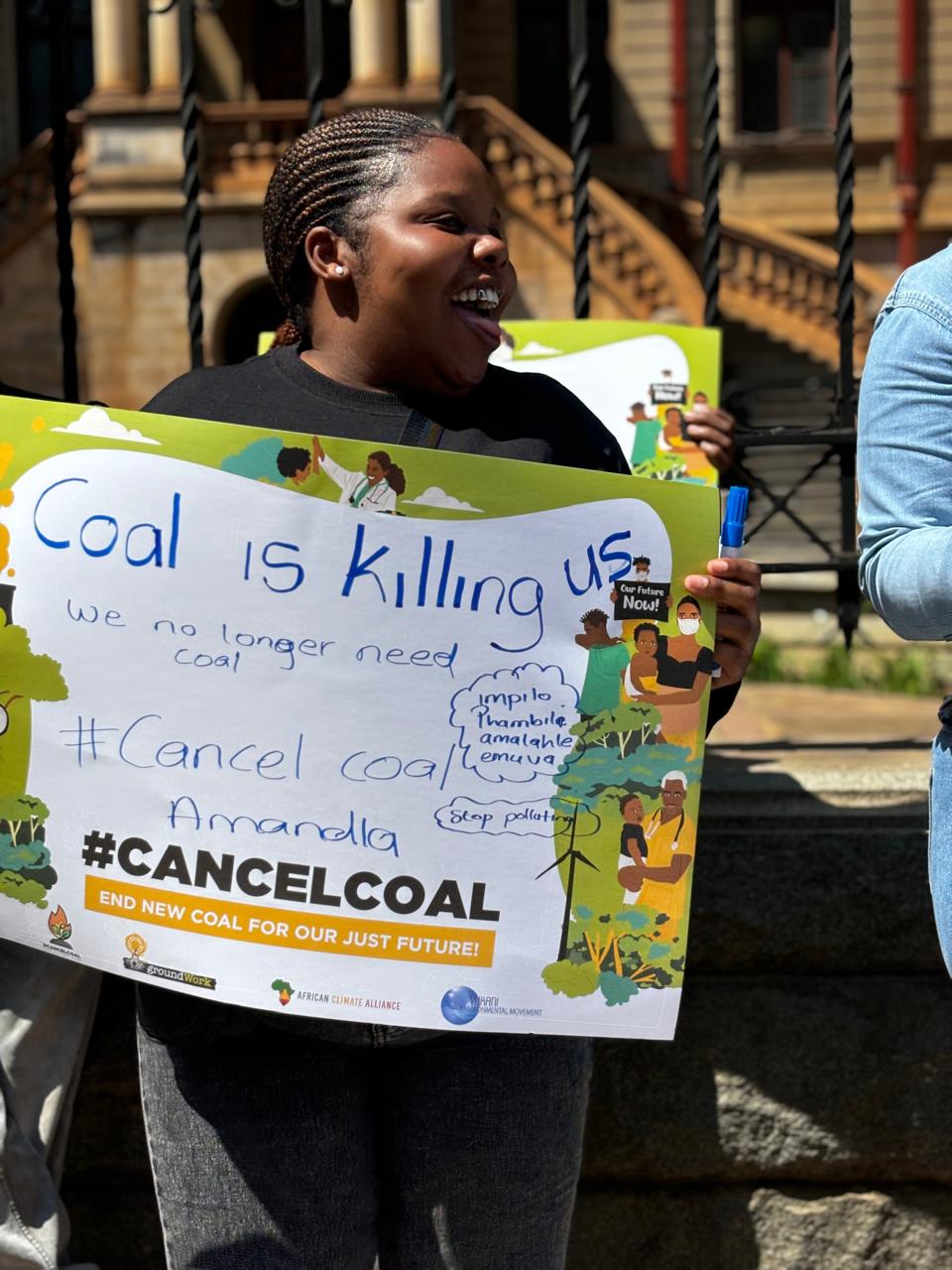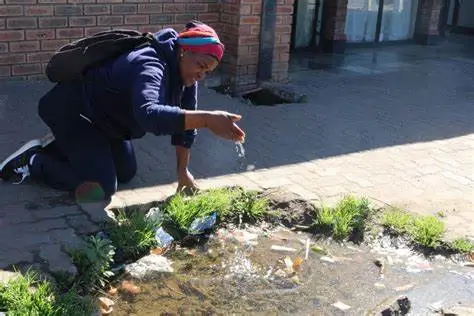Recyclable items collected and sorted at the African Reclaimers Organisation’s sorting centre are compressed using a baler machine before being sold to buy-back centres. Photo: Masego Mafata
Talks to integrate informal waste reclaimers with the City of Johannesburg’s waste management have gone nowhere for three years
- The African Reclaimers Organisation has established a sorting centre for recyclable materials in Selby, Johannesburg.
- This comes after talks with the City to integrate informal waste pickers with municipal waste management plans have gone nowhere for three years.
- The sorting centre currently employs 27 people.
After almost three years of stalled talks with the City of Johannesburg on the integration of informal waste pickers, the African Reclaimers Organisation (ARO) has taken matters into its own hands by establishing a sorting centre in Selby, south of Johannesburg.
Reclaimers earn a living by separating and collecting recyclable materials from waste, which they then sell to buy-back centres. They can often be seen pushing trollies of recyclables around the city.
ARO’s “recycling with reclaimers” programme collects from nearly 100 residential areas around the City.
“Instead of sorting waste and recyclable materials at a landfill while exposed to weather conditions, reclaimers can do their work in our sorting centre where they are also spared from the health risks of working at landfills,” says Luyanda Hlatshwayo of ARO.
The sorting centre, which has been operational for over a year, was generating enough income to pay the reclaimers working there, as well as other operational expenses, within six months. It employs 27 people.
“Reclaimers working at the centre are also entitled to UIF and we provide other benefits like funeral cover,” says Hlatshwayo.
ARO has been campaigning since 2018 for recognition of the contribution made by reclaimers to the recycling value chain, and for them to be paid appropriately.
“People will see you pushing a trolley or looking for recyclable materials in bins and think you are dirty and on the streets because of drugs. They don’t recognise reclaiming as work,” says Hlatshwayo, who has been a reclaimer for 14 years.
Mantoa Khoali has put her son through school thanks to reclaiming recyclables. “He is now at a college for agriculture in Lesotho and it is through my work as a reclaimer that I have been able to support him,” the 44-year-old single mother said.
Khoali, now chairperson of ARO, became a reclaimer in 2016 after realising that she could earn more than as a domestic worker.
“The work is not easy though. We have to wake up as early as 3am to start our day. As a woman, I always have to make sure I am working with male reclaimers because it’s not safe for me to be walking around in the dark alone,” she said.
Khoali said without recognition and support from the government, the reclaimers work in difficult conditions.
“The prices of recyclable materials are not regulated. So in a good week, you can make about R3,000, but in a bad week you can make under R1,000 for materials of the same weight,” she said.
Khoali said there is a lack of sites around the city for reclaimers to store their material, so they have no choice but to store the material where they stay or in parks.
Muzi Mkhwanazi, the spokesperson for Pikitup, the City’s waste management entity, said: “The City is looking at how best they can assist waste pickers with sorting facilities.” He said there were no time frames regarding when these spaces would be set up “due to budget constraints”.
National waste management strategy
In 2020, the Department of Forestry, Fisheries and the Environment published the National Waste Management Strategy (NWMS). The integration of reclaimers is included and ARO is listed as one of the implementing agents.
A Reclaimer Integration Task Team was formed in 2021 with the City, Pikitup, ARO and other stakeholders. But talks stalled in 2021 and there has been no progress.
According to Pikitup, ARO “walked out” of the meetings and “talks will resume when ARO is ready to engage the City again regarding waste picker integration”.
But according to Hlatshwayo, ARO had raised concerns regarding the City’s approach to reclaimer integration and the City has not responded. Rather than listening to what reclaimers would like to see, the City was telling reclaimers what to do, he said.
Professor Melanie Samson, researcher at the University of Johannesburg, who works with reclaimers, said the work of reclaimers already forms part of waste management and recycling systems, albeit without formal recognition from the City.
“Without [reclaimers], the landfills in Johannesburg would have closed long ago and there would not be a recycling economy as they collect the bulk of the materials that enter the recycling value chain,” she said.
According to Samson, the City should support and expand ARO’s existing separation-at-source programmes, which have proven themselves.






